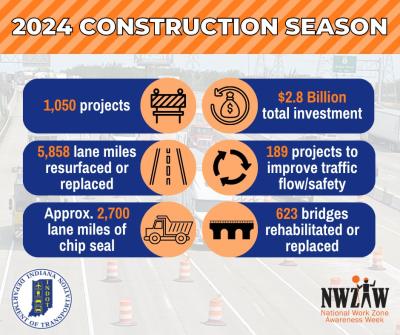The 15 percent increase in North Carolina’s fuel excise tax that went into effect Jan. 1, isn’t really what’s troubling some of those concerned about the Tar Heel State’s roadways.
It’s where the money is — and isn’t — going.
Originally levied to fund road maintenance and construction, hundreds of millions of dollars each year is being transferred away from road projects and into the state’s general fund.
Some opponents to the gas tax, such as Bill Graham, attorney for the conservative group “North Carolina Conservatives United” and Rep. Sue Myrick, R-NC, want to see the money stay where it’s meant to be.
In addition, some opponents have proposed a cap to the gas tax rate, which is adjusted based on the wholesale price of gasoline, because of the ever-increasing price.
According to Thomas Stith, vice president of the Civitas Institute, more than $534 million earmarked for North Carolina roads has been transferred to the state’s general fund in the last five years. The conservative Civitas Institute is a research and public policy organization dedicated to suggesting solutions for North Carolina’s pressing issues.
Stith said the amount already brought in this fiscal year exceeds what was included in the 2005/2006 budget and that all of the transportation expenses could have been taken care of without the recent increase to 29.9 cents.
Not so, said Mark Foster, chief financial officer for the North Carolina Department of Transportation. He said the department is currently underfunded by 50 percent and repealing or reducing the state motor fuel excise tax would only add to the problem.
“There is a $14 billion funding gap between state transportation needs and resources. By 2025, this is expected to increase to $30 billion,” Foster said. “In addition, for the first six months of this year, the DOT revenue collections have been 4 percent below budget estimates. Gas taxes, which are included in this total, are 1 percent below budget.”
Two Funds Pay For Transportation Costs
According to NCDOT Spokesman Bill Jones, there are two primary transportation funds in North Carolina — the Highway Fund, established around 1920, and the Highway Trust Fund, established in 1989.
“The biggest expense to the NCDOT is the building of new roads and the expansion of old highways,” Jones said. “In addition, there is a significant amount of maintenance needed to sustain the old road system.
“The Highway Fund is used primarily for highway maintenance. In addition, it provides support to state agencies like the highway patrol and the state drivers education program,” Jones said. “The Highway Trust Fund is to be used primarily for new road construction or to widen and add additional lanes to older roads.”
The Highway Trust Fund was established by former Gov. Jim Martin to provide financial support to move along much-needed road projects. Its purpose was to fund the completion of a system of four-lane highways connecting most North Carolina cities and towns, the construction of loop roads around seven of the largest cities, the paving of 10,000 mi. (16,000 km) of dirt roads and increase aid to municipalities for maintenance of city-owned streets. The North Carolina General Assembly decided to raise the needed $9 billion from new taxes and fees, such as vehicle registration.
How the Gas Tax Started
According to Jones, in 1921, the General Assembly imposed a 1 cent flat gas tax, which periodically increased over the years until 1992 when it reached its present rate of 17.5 cents per gallon. In 1963, a 0.25-cent inspection fee was implemented.
In addition, the first tax based on a percentage of the wholesale price of gas was introduced in 1986 at 3 percent. In 1989, the Highway Trust Fund was changed from 3 percent to a variable rate of 7 percent. This is the state fuel excise tax. The variable rate is adjusted every six months based on changes in the wholesale gas prices.
“The justification for the variable 7 percent tax, based on the wholesale gas prices, is to offset losses to the state due to inflation,” Jones said. “As gas costs go up, consumers drive less, thus purchase less gas, and tax collections go down. The variable tax rate would ensure a consistent stream of revenue for the state.”
He noted that all sales tax on automobiles now goes to the Highway Trust Fund. Previously, this money went to the state’s general fund.
“It was for this reason a provision in the 1989 law allowed for the transfer of some of its funds to the general state fund, so that to the state fund would not be harmed by not receiving the auto sales tax,” Jones said. “This annual transfer was set at $170 million and was to continue indefinitely.”
Transfer of Funds Questioned
However, according to Myrick, the General Assembly has transferred more than $170 million from the Highway Trust Fund for the last five years — $252 million in 2001; $251 million in 2002; $377 million in 2003; $252 million in 2004; and $252 million in 2005.
According to a General Assembly source, in 2001-02, as a response to a budgetary shortfall in the federal fund, the governor transferred an additional $80 million (above the $170 million) from the Highway Trust Fund to the general fund by executive order. Since then, the legislature has followed the example set by the governor, the source said and transferred additional amounts to the general fund. In 2002-03, the legislature increased the transfer by $205 million, although $125 million of this was in the form of a loan to be paid back with interest in subsequent years. In 2005-06, the loan from the Highway Trust Fund to the general fund was forgiven.
“Taking more than $170 million from the Highway Trust Fund is illegal because the law, when it was written, set that specific amount,” Jones said. “If they want to take more out of the Trust, and thus take more money away from needed road projects, they should rewrite the law dealing with the Trust, thereby making the public fully aware of the amount of gas tax money being taken away from road projects.”
Conservatives Rally Against Increase
This year’s 2.8-cent per gallon increase was attributed to the impact of hurricanes Katrina and Rita on crude oil production along the Gulf Coast, causing petroleum and crude oil costs to increase which, in turn, skyrocketed wholesale gasoline prices. The increase makes North Carolina’s gas tax the sixth highest in the country.
Following the tax increase, the General Assembly’s legislative committee discussed the gas tax and rising home heating fuel costs, along with the impact of the higher gas prices on North Carolina’s businesses and roads.
At the same meeting, conservative groups asked the committee to roll back the gasoline tax increase and find a better way to generate road-building money. Supporting this was Graham, who presented binders containing the names of more than 22,000 people who he said want the gas tax increase eliminated.
According to the governor’s office, eliminating the increase of 2.8 cents per gallon would deprive the state’s $2.7 billion highway fund of $135 million a year. The cost savings to the average driver would be $15 a year.
Increase Called a Burden to Consumers
“The biggest concern we have with the increasing gas tax is the extra burden it is putting on the taxpayer and the misuse of the trust fund, where funding from the Highway Trust Fund is being transferred out to the general fund,” Stith said. “If the state and DOT had followed the original intent of the Highway Trust Fund Legislation, then North Carolina would still be known as the ’Good Roads State’ and we would have our loops around major cities providing access to a major interstate to most North Carolinians. This was the vision for the Trust Fund. Instead, the legislative leadership chooses to spend tax dollars on tea museums.”
More Support Sought For Road Repair and Construction
“North Carolina’s transportation system is one of its major assets,” Foster said. “The longer we wait to repair problems and address the financial needs of the system the more problems we will have. Possible solutions to the financial deficit may include public and private partnerships [or] broader user fees and road tolls. At this time more federal funding is unlikely.
“Historically, the legislators have made positive moves towards accelerating transportation initiatives,” Foster said. “Repealing the gas tax would be counterproductive, particularly at a time when inflation has been on the rise. North Carolina incurs the full impact of inflation. Specifically, increases in the cost of petroleum, concrete and steel have led to 20 percent increase in construction costs per year over the last several years and 2006 will fare no better.”
Foster said the gas tax is not a “windfall,” nor is it the complete answer to funding the state’s transportation needs.
Group Wants Money Kept For Roads
“We want to see the state be more responsible with the funds they already have, in addition to using the funds as they were intended,” said the Civitas Institute’s Stith. “Funds intended to be used for maintenance of existing roads and construction of new roads should be used for that purpose. This would greatly improve budget problems within the DOT.
“Our state’s leadership has wasted the road money,” Stith said. “If they had used the $534 million, which was transferred from the Highway Trust Fund to the general fund, for roads, a tax increase would not be necessary.” CEG
Today's top stories














